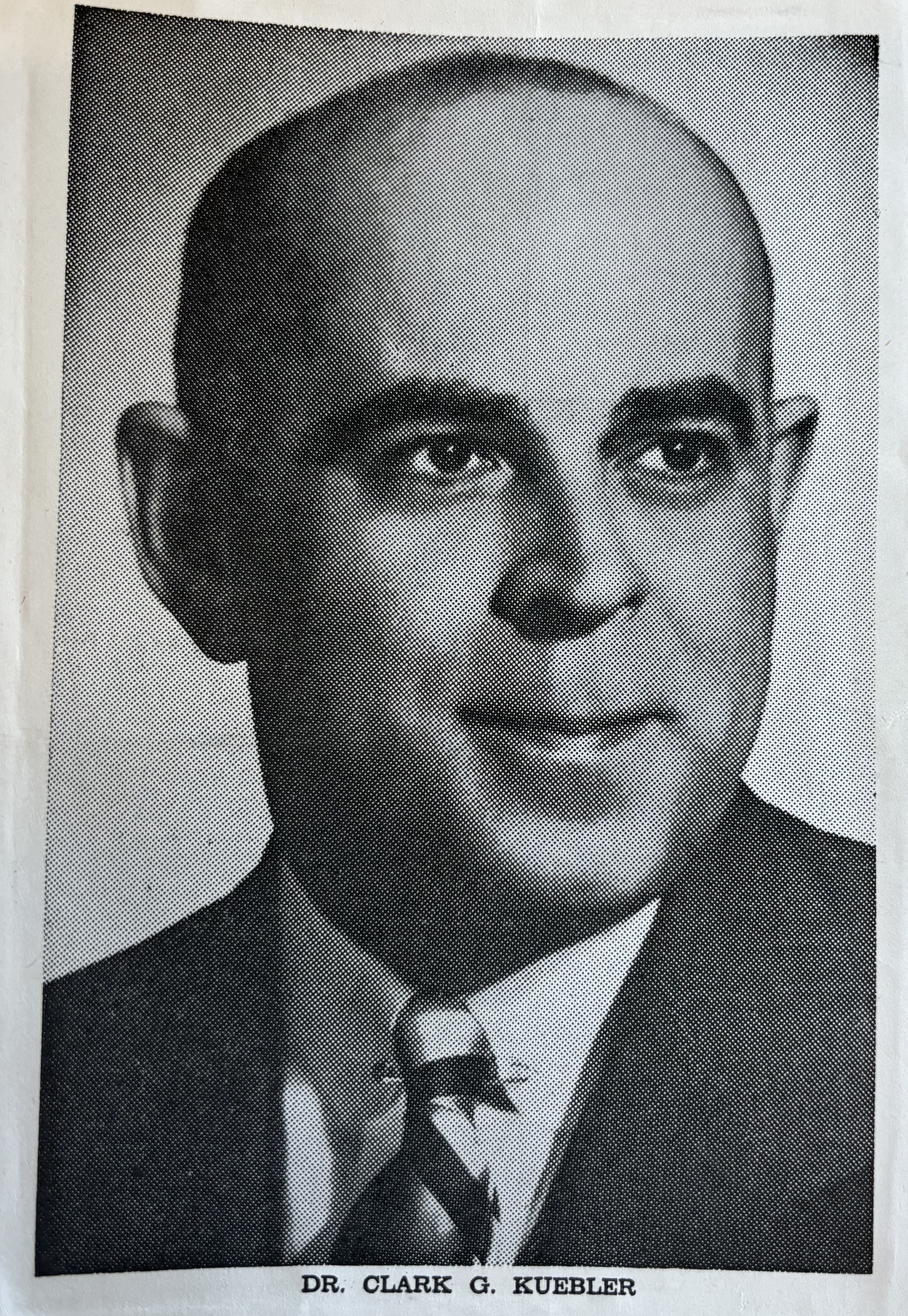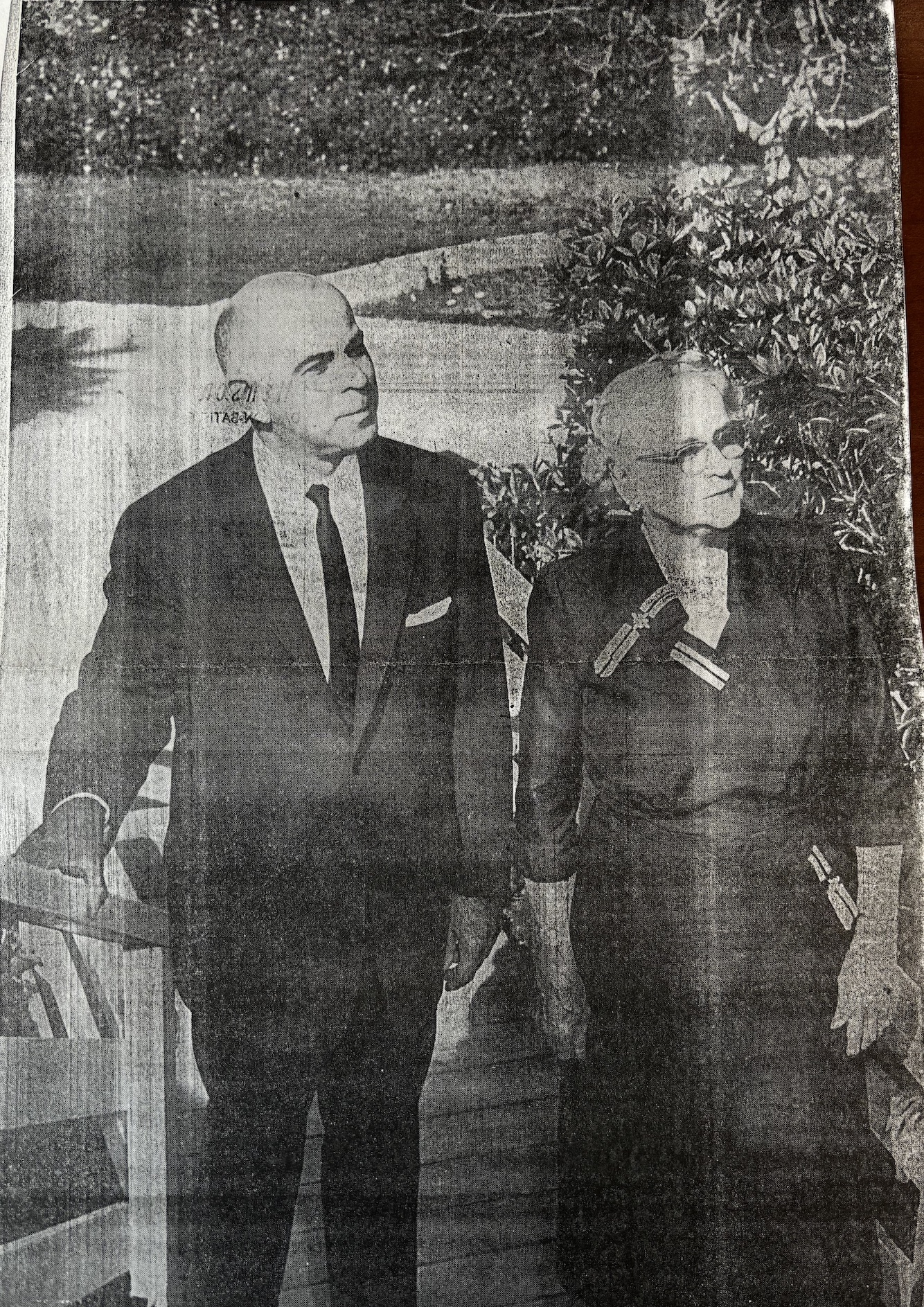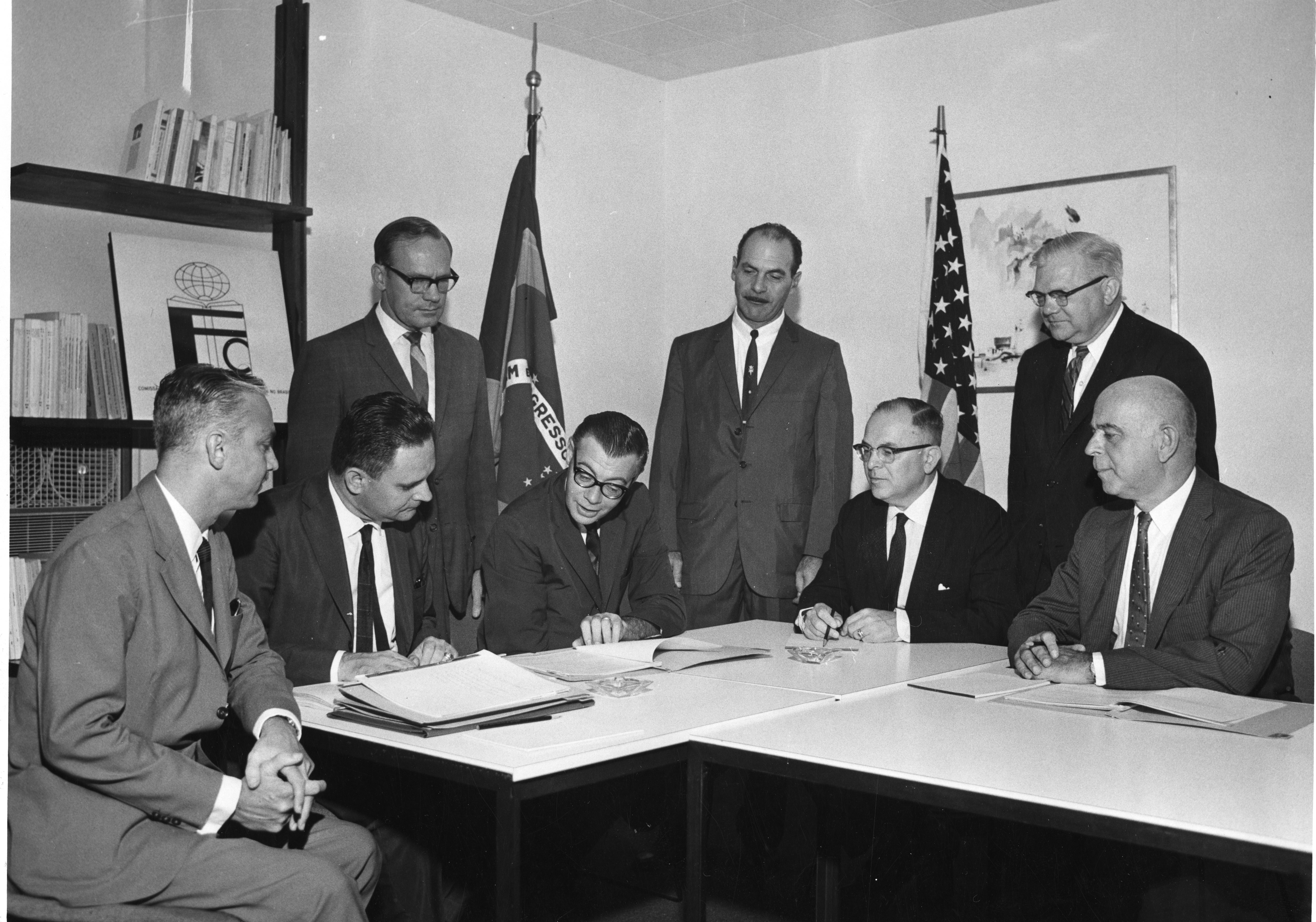A Glimpse of Gay History at UC Santa Barbara
University’s Provost Was Caught in the ‘Lavender Scare’

March 28, 2024, will mark the 50th anniversary of the death of Clark George Kuebler, the third leader of the institution that was to become UC Santa Barbara. Kuebler was a prominent defender of the value of the liberal arts in some of the darkest hours of the Cold War. He was also a victim of the 1950s McCarthy-era purges that forced many LGBTQ people from their positions in government and higher education — what came to be known as the “Lavender Scare.” This would be a highly appropriate moment for UCSB to offer some expression of regret for how this early leader of our campus was treated, while also recognizing and celebrating his accomplishments and vision.
In February 1955, Santa Barbara offered a warm welcome to the new head of the Santa Barbara College of the University of California, Provost Clark G. Kuebler (the title “chancellor” was not introduced until 1959). With a BA from Northwestern and a PhD in Classics from the University of Chicago, he taught for several years as a faculty member of the Department of Classics at Northwestern. He was then appointed as the seventh president of Ripon College, Wisconsin, where he quadrupled student enrollment, increased the college endowment from $750,000 to more than $3 million, and strengthened the college’s standing by hiring only new faculty with PhD degrees from prestigious universities. His national reputation as a scholar and public lecturer, along with his proven track record as a college president, made him a perfect fit for the budding new Santa Barbara College that later became UCSB.
The Goleta Valley Times wrote on April 1, 1955: “Clark George Kuebler, an inspired and persistent salesman for liberal arts education, was inaugurated as provost of Santa Barbara College this week amid pomp and circumstance worthy of this academic milestone in the development of the University of California that is growing in importance every year.” The Santa Barbara News-Press on March 28, 1955, reported that the governor of California, the president of the University of California, and 450 “gowned and capped delegates and faculty members” participated in the event in front of several thousand spectators. This was also an inauguration of sorts for the new Goleta campus, described as “almost barren, as yet, of trees and shrubs.”

Kuebler’s inaugural address, “Liberal Arts — A Luxury or a Necessity?” was published in full in the News-Press. He began by saying that he was “overwhelmed by the friendliness and helpfulness” of everyone at the University of California and the warm welcome he had received from the communities of Santa Barbara and Goleta. He then launched into an impassioned defense of the value and purpose of the liberal arts. He noted that “that kind of education, because it seems to some to be impractical, needs constant definition and defense,” a sentiment that could equally well apply to the precarious situation of the humanities in our own times, nearly 70 years later.
In his first months in office, he devoted himself to bringing “town and gown” together — he gave the commencement address at Santa Barbara High School, introduced the Santa Barbara Music Society’s Third Bach Festival at the Lobero Theatre, and spoke at Trinity Episcopal Church. To nearly everyone in both academic and civic circles, he seemed the right man, at the right place, at the right time.
And then he was accused of being gay.
That fall, Kuebler traveled to New York to interview candidates for positions as professors in the English Department. On November 6, 1955, he invited a young man up to his room in the Biltmore Hotel. That young man turned out to be 28-year-old Eugene Kelly, a police officer with the N.Y.C. Vice Squad. Where and how they met is not clear, but Kelly accompanied Kuebler to his room, where, according to newspaper accounts, Kuebler made an “immoral proposition,” at which point Kelly revealed his identity. Kelly later reported that Kuebler then “offered him $30 to forget the incident,” and when Kelly refused, Kuebler allegedly “pummeled him.” In case readers did not understand the full implication of this account, some newspapers added the insidious detail that the 47-year-old Kuebler was “a bachelor [who] lives with his mother” (Kansas City Times, Nov. 6, 1955). Kuebler was arrested on a morals charge and for assaulting an officer. The story was published in newspapers across the country.
Kuebler asserted his innocence, however, and less than two weeks later, after several witnesses testified to Kuebler’s good character, all charges were dismissed due to insufficient evidence. Magistrate Hyman Bushel commented, “There is not a jury in the world that would convict this man” (The Indianapolis Star, Nov. 18, 1955). Dean John C. Snidecor was appointed acting provost, and in the wake of the national scandal, Clark G. Kuebler offered his resignation.
The News-Press (Dec. 17, 1955) reported his resignation under the headline “Kuebler Quits as Provost of Local College: Board of Regents Accepts Resignation at L.A. Meeting,” but also published his poignant personal statement:
“During the past six weeks I have tried to evaluate objectively the results my tragic experience in New York. Clearly exonerated in a court of law, I am innocent of the charge and its ugly implications; and yet the publicity given to the false accusation has done me irreparable damage. There are always those who consider an accusation a conviction of guilt; they habitually believe the worst of others, they are jealous of what success the accused may have had or they dislike him for what he is or stands for and use the accusation as a weapon for character assassination … My first interest has been and still is the university which honored me by calling me from the presidency of Ripon to head Santa Barbara College. I am determined that my personal tragedy not stand in the way of its future. Accordingly, on Wednesday of this week I formalized and made irrevocable the resignation which I had submitted to President Sproul on Nov. 17 by telegram from New York. This I have done with full awareness of its results for me and my family; but I have done it out of respect and affection for the university.”
These events took place at the tail end of the McCarthy era, when Senator Joseph McCarthy led campaigns to harass and prosecute communists and homosexuals in government, universities, and the entertainment industry. Although the search for communists has received the majority of attention from historians, the “Lavender Scare” that sought to entrap and arrest homosexuals probably implicated and ruined more people’s lives than the “Red Scare.” Homosexuals were purged from the federal government and in many cases from positions in American universities. Homophobia was rampant, and even the accusation of being homosexual could destroy a person’s career. Kuebler’s dismissal or resignation was probably unavoidable once his arrest became public and the scandal became national news.

After resigning from his position as provost, Kuebler traveled to Brazil, where he lived the rest of his life. He is listed as having been a private businessman, and in the 1960s, he served on the Fulbright Commission there. He died in Rio de Janeiro on March 28, 1974, and was buried in Palatine County, Illinois, where he had grown up.
While author bridge mcwaid, a UCSB History PhD student, was conducting this research, she remarked, “This story about Clark George Kuebler is not simply about one man, but rather it’s part of a larger story of our nation and its institutions policing and punishing queer bodies, personhoods, lives, and loves. I am honored to recover this story, angered by its reality, and hopeful that the ongoing paths toward freedom and justice are being paved as we (un)learn about important figures like CGK.”
Kuebler may never have identified as “gay” in the modern sense of the term, for there was little in the way of visible “gay pride” or an accessible gay community to welcome and support him in the 1950s. But he is certainly part of UCSB’s LGBTQ history. He is a figure who was dealt with in a deplorable manner, a man whose life and career were ruined because legalized homophobia forced men like Kuebler to hide their sexual desire. The laws have thankfully changed; police entrapment is no longer (commonly) used to pursue and prosecute sexual activity among consenting adults — we can only hope that if a similar incident came to light today, the individuals involved would be treated more justly. In the meantime, this is a moment for all of us to reflect upon the experiences of members of the LGBTQ community and other minorities in the 1950s and beyond, and work together to build a future on our campus and in society as a whole where that kind of oppression is no longer tolerated.

You must be logged in to post a comment.